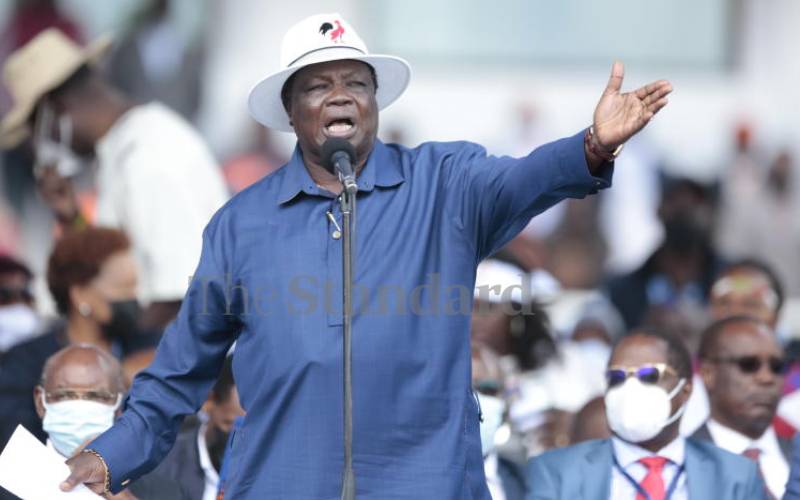×
The Standard e-Paper
Home To Bold Columnists

COTU Secretary-General Francis Atwoli. [Boniface Okendo, Standard]
Cotu Secretary General Francis Atwoli often claims – in jest – that there are only three key influential people in Kenya – President Uhuru Kenyatta, former Prime Minister Raila Odinga and himself – and that the rest are “donkeys”.